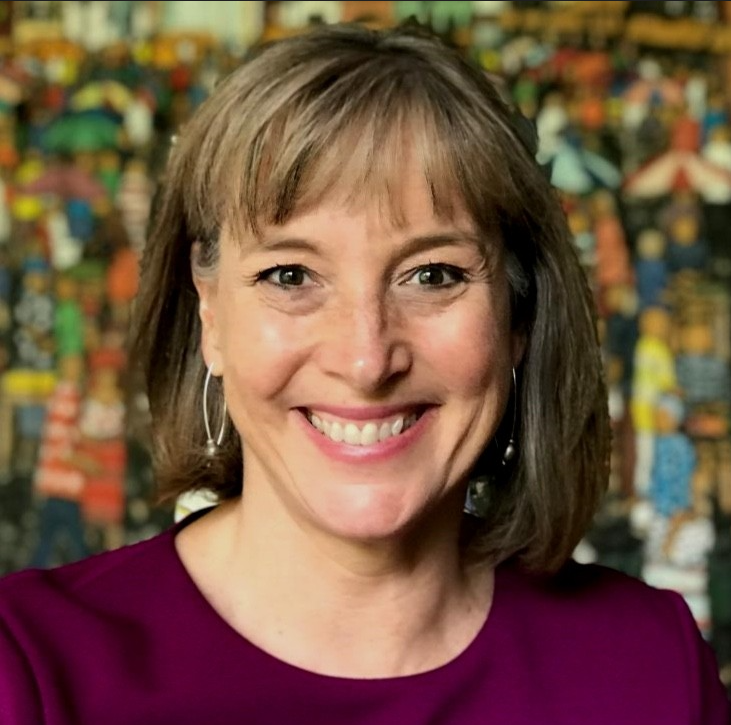
Beth Schlachter is the Interim Director of Global Advocacy and U.S. Representative for the International Planned Parenthood Federation.
Articles by Elizabeth Schlachter

Reimagining family planning: beyond opinion leaders and service uptake indicators
This featured perspective was originally published as a Comment in The Lancet, Vol 11, December 2023. Click here to view the original or scroll down to download the PDF. In The Lancet Global Health, Agrey H Mwakisole and colleagues explore the role of Christian religious leaders in promoting family planning in rural Tanzania. Given the roles that religious leaders can hold as trusted community messengers, the Article provides strong recommendations for including them in family planning initiatives, suggesting that, as an innovative and adaptable strategy, it could contribute positively to global initiatives towards universal access to modern contraception, if implemented broadly. The researchers also engaged equal numbers of male and female religious leaders, and data from this study suggest that the intervention increased women’s autonomy to choose to use contraception. There are a lot of data to support this approach. Faith leaders have been shown to hold power as opinion leaders and critical agents of change, with a study demonstrating the improved effectiveness of health behaviour change programmes focused on concerns such as nutrition and fitness when provided by members of the clergy. When it comes to sexual and reproductive health and rights (SRHR) issues such as access to contraception, a study substantiates this correlation that religious leaders can improve access to contraceptives, especially in settings where religion plays an important role in the socioeconomic fabric of society. In this Comment, we challenge readers to question some of the bigger implications of this strategy, and how, although effective in facilitating uptake of contraceptive services, engaging religious leaders could reinforce existing power dynamics and potentially compromise women’s autonomy and decision making, especially when it comes to realising their reproductive intentions. We also worry about the continued emphasis on contraceptive uptake as the most important indicator in the global family planning community, and finally encourage the move from family planning as a siloed issue in reproductive health, to one shaped by deeper social, economic, and cultural factors.

Abortion care — we won’t let the opposition define us
It has been just over four months since the U.S Supreme Court made the shocking decision to overturn Roe v. Wade — the 1973 law that guaranteed the constitutional protection of abortion rights across the United States. While it was no secret that women's rights in the “land of the free” have been under constant attack, the outrage, fear, disgust, and disbelief are palpable. What had historically been the most trusted court in the U.S. robbed millions of their fundamental rights, freedom, and bodily autonomy, forcing women, girls, and pregnant people to carry pregnancies to term and denying them essential and life-saving health care. Most abortions are banned in at least 14 U.S. states, with one in three women between the ages of 15 and 44 — a staggering 20.9 million — having lost access. Providers must now contend with rapidly changing, intentionally vague legislation as we learn in real time what it means for the millions who still need urgent abortion care. Women have suffered life-threatening and life-changing health consequences after waiting days for an emergency abortion, including hemorrhaging, sepsis, and hysterectomies. Others face the mental anguish of having their most intimate decisions decided by the state, with "young women today coming of age with fewer rights than their mothers and grandmothers.” Unfair and reckless policies only encourage other extremists, and we are already seeing the chilling effect of reversing Roe play out globally. The day after Roe was overturned, a representative in the Puerto Rican legislature introduced a bill punishing "the crime of abortion" with 99 years in jail. While the bill was withdrawn and abortion remains legal, it signifies the growing interest of fundamentalist policymakers to hinder abortion access globally, spurred on by the loss of rights in the U.S. In Nairobi, Kenya, where activists are making incremental progress liberalizing the restrictive colonial abortion laws which kill an estimated 2500 women and girls each year, colleagues from the International Planned Parenthood Federation Africa region tell us that the anti-choice opposition post-Roe is relentless, with abortion rights wins immediately contested and dragged back into court before there is a chance to implement them. This includes the 2022 ruling by the Kenyan Supreme Court, which affirmed abortion as a constitutional right. Meanwhile, in India, which just recently made history for giving all women in the country equal rights to safe abortion care, we have seen church-sponsored anti-choice movements spring up in response to Roe, now filing a case in the Indian Supreme Court in an attempt to repeal the Medical Termination of Pregnancy Act — the legal basis that gives Indian women the right to an abortion. And this September, Hungary also modified its abortion law, forcing pregnant people to listen to embryonic cardiac activity before allowing them to receive abortion care. A tactic lifted straight from Texas' medically inaccurate "heartbeat bill", and one pushed through without expert or public consultation. Looking at the bigger picture, we see ultraconservative far-right movements gaining ground, spurred on by anti-women, anti-gender equality, and anti-LGBTQI+ extremists seeking to deny people their freedoms. The calculated yet insidious global shift toward extremist populist sentiment is precisely the environment anti-abortion lawmakers have worked for decades to create — and Roe's reversal has set a dangerous precedent for disregarding abortion access in the pursuit of power and fundamentalist principles. But when we face darkness, we must turn to the light, and while we grapple with providing abortion care in uncertain times, the overturning of Roe serves as an important reminder that while, historically, the global agenda on abortion rights has been set by nations in the global north, what we once held in high regard is not necessarily the right or only choice. At IPPF, we won’t let the anti-choice opposition define us, and are instead choosing to spotlight nations paving the way for human rights, like Colombia, which in response to Green Wave feminist activism in Latin America, decriminalized abortion in a historic move earlier this year. And which post-Roe withdrew as a signatory to the Geneva Consensus Declaration, a global anti-abortion statement introduced by the U.S. Trump-Pence administration. Or Thailand, which three weeks ago legalized abortions up to 20 weeks, reflecting the progress of medical experts and pro-choice activists in a country that two years ago criminalized abortion. Now more than ever, we must strengthen progressive social movements, using solidarity to reinforce our commitment to safe abortion care for all. We must bring people together in their millions to fight for fundamental human rights, like at the 2022 International Conference of Family Planning in Thailand this week, which will place access to abortion at the heart of the movement for the first time since its inception. By creating networks, collectives, and communities of supporters worldwide, we can ensure access to #SafeAbortionRegardless. Through safe medical abortion pills and supporting and accompanying women to travel for care, we can ensure that people experience unwavering support while making their own reproductive decisions like we have seen on the U.S-Mexico border since the reversal of Roe. Using strength in numbers and medical expertise, we will continue to advocate for unhindered access to comprehensive sexual and reproductive health care. Solidifying relationships and abortion legislation with supportive policymakers and uniting against those who put personal belief ahead of health, choice, and international human rights law. A sentiment reflected in the recent U.S midterm elections after people in Kentucky, Montana, Michigan, Vermont, and California decisively voted to maintain control over their bodies, lives and futures, supported by our relentless partner Planned Parenthood Action Fund. The impact of reversing Roe will take decades to undo. Still, the commitment of pro-choice advocates burns more fiercely than ever — and with people's health, lives, and futures on the line, the fight for sexual and reproductive rights will not stop until everyone, everywhere, can access safe abortion care.









